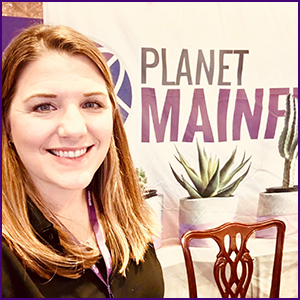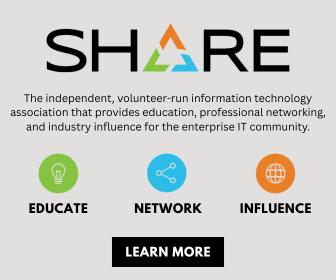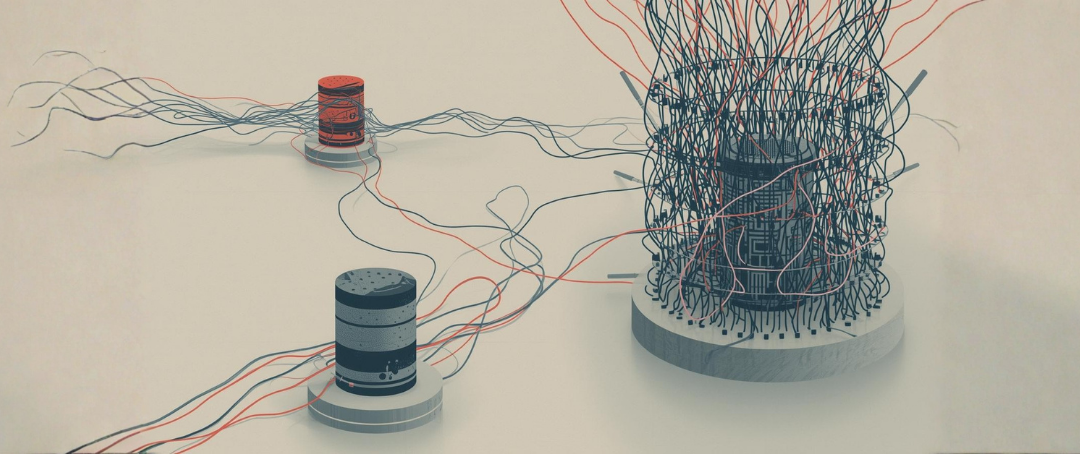At SHARE Cleveland, I sat down with Scott McFall, Vice President of Business Development and Strategy at ProTech IT Training & Consulting. Scott has more than 30 years of experience in IT training and development and is a multi-year IBM Champion, so it was no surprise that our conversation was packed with insights.
Scott talked about ProTech’s growth from a handful of mainframe courses to a wide portfolio that now includes training for Unix, Linux, and other modern technologies. What stood out to me most was his passion for preparing the next generation of IT professionals. Yes, ProTech’s instructor-led boot camps and custom programs teach technical skills, but they’re also designed to provide mentorship and continuous learning that helps people build long-term careers.
Scott also shared his perspectives on:
- The mainframe’s modern role
- The smart use of AI in training
- Why hands-on, expert-led education continues to matter even when self-paced modules are everywhere.
This is just a snapshot of what we discussed. I also found his balanced views on security, hybrid environments, and the future of IT training refreshing and thought-provoking.
Watch our full interview for his vision for ProTech and the future of IT training.
Read the Transcription
Introduction by Amanda Hendley, Managing Editor, Planet Mainframe
Scott McFall is Vice President of Business Development and Strategy at ProTech IT Training & Consulting. Scott has been an IBM Champion since 2021 and has more than 30 years of experience spanning system support, application development, sales, and management. He leads ProTech’s Corporate Development and Global Partnerships, serves on the IBM Mainframe Skills Council, and is a familiar face on stage at SHARE and other industry events.
What is ProTech?
ProTech has been an IBM Business Partner for 35 years. We started off in mainframe technologies with only ten courses when I began, all of them mainframe. Over the years, we’ve diversified into other platforms, because mainframe customers have a little bit of everything. We ventured into Unix, Linux, and other technologies as well.
The company is really broken into three practices. One is training, which we’re mostly known for and which makes up the majority of our business. We also have a consulting practice, focused on System Z—particularly systems management and automation, or what they call “observability” now. That seems to be the term of the day. And then we have software products, also built around System Z.
What is ProTech highlighting at SHARE this year?
One of the things we always bring to SHARE is, of course, all of our mainframe classes, but in particular our boot camps. Those have been very popular in the last few years because we’ve seen a huge increase in the number of young people coming to the platform. There’s a lot of activity around new-hire programs to train college graduates or non-traditional workers—whether the employer is bringing on a developer, an assistant programmer, or operations staff. We have programs for each of those.
Could you give me an overview of the boot camp program?
We’re only in the instructor-led business. We do partner with Interskill for self-paced courses in System Z—they’re a very popular provider—and we do blended learning with their products. But our deliveries are all instructor-led by expert instructors, with very hands-on workshops.
These programs are intense—sometimes we call it “drinking from the fire hose.” It’s a lot of information in a short period of time, but we’ve been doing this for nearly 35 years. Programs usually run from a few weeks to a few months, depending on what the customer wants.
How do your training solutions help organizations build and retain modern mainframe skills?
To help retain the people we train, we work closely with customers to make sure it isn’t just a one-and-done program. We want our training to be part of an overall learning and development plan, with self-paced products for pre- or post-work, plus follow-up training and mentorship once students return to their positions. That way they have someone to play off of and can apply skills quickly.
One program I’m particularly proud of involved a staffing firm that had a state grant. They were bringing in returning veterans from Iraq and Afghanistan and turning them into mainframe developers for a large bank. These veterans had no IT background, and we taught them from the ground up. Over several weeks, every participant was hired by the bank. That was a very successful program.
How do you tailor training to meet each client’s needs?
We do a lot of private training. Many training companies make most of their money by filling public schedules, but that’s never been our model. The Z Practice, which I run, has always been a bespoke, custom provider.
We work closely with the customer, the instructors, and the client’s SMEs. Sometimes it takes weeks or months of back-and-forth to design the right program. For example, I’m working with a software provider here at SHARE that’s building a Next Gen Academy for their new hires. We’re collaborating with them now to create a custom program for this fall.
What role does training play in solving the mainframe talent shortage?
We’re doing our part, but we’re not the whole solution. One program I’m very proud of is the Broadcom Vitality Program, which we worked closely with Broadcom to develop. It’s been very successful, with many students going through and almost all of them staying with their employers.
Last year, I counted more than 2,200 students trained through our mainframe programs. That’s just one contribution among many in the ecosystem.
Do your programs attract younger or non-traditional mainframe learners?
Yes. Many nonprofits come to us with grants—federal, state, or otherwise. Some focus on underprivileged areas, women in IT, or veterans. We’re very active with those programs. LaunchCode, for example, works with the Vitality Program to recruit candidates, reaching all of those groups I just mentioned.
What is one outdated assumption about mainframe training?
The biggest misconception is that mainframe training, like the platform itself, is outdated. People think it’s legacy technology that needs to be replaced. As an IBM Champion, I spend a lot of time explaining that the mainframe is extremely modern. IBM has introduced new technologies to the platform every year for the past 20 years.
One of the game-changers now is quantum-safe computing. System Z is the only platform that is quantum safe, and that’s going to matter enormously.
Where do you see mainframe skills and training heading in the next few years?
It’s going to keep growing. When SHARE came to Pittsburgh in 2014, I noticed how much younger the crowd was, and we saw double-digit growth in mainframe training that year. Between 2014 and 2019, it became the number one thing we were selling at ProTech—the first time it held that spot since Y2K.
My CEO once questioned why we were still investing in mainframe, but I told him to be patient. Sure enough, it’s been our top area for the last several years.
In what ways does ProTech include observability skills in training?
Observability is today’s term for what we used to call enterprise systems management—or even earlier, data center automation. Our company was founded by people from Legent Corporation, which became part of Computer Associates and then Broadcom. We’ve always been in this space and taught these technologies. For us, observability isn’t new.
How is ProTech approaching AI in training?
We’ve been teaching AI for over a decade, long before it was the “topic of the day.” Banks were some of the first to come to us for AI training in fraud detection, and now AI spans every area of IT.
When it comes to using AI in our own training, I take a pragmatic approach. My instructors are excited, but I remind them not to get distracted by every shiny thing. We’re sticking to our core—expert, instructor-led delivery—while experimenting with ways AI can help. For example, we used AI text-to-voice to convert curriculum into Portuguese for a class in Brazil, and it worked so well the interpreter joked that we didn’t need them.
How do your training solutions address mainframe security?
Security is still evolving, especially in hybrid and cloud environments. I’m cautious about customers moving too much too quickly. We’ve seen this before with client-server and other “shiny” shifts. Mistakes are easy to make in hybrid migrations, particularly around security.
The mainframe’s strengths—security, scalability, reliability—make it vital in these environments. But if you don’t use it for what it does best, backdoors can creep in when integrating with cloud.
Are you seeing increased demand for training in specific areas?
Yes, especially in systems programming. Many companies teach mainframe, but not all provide deep systems programming training. That’s been our niche—courses like REXX and SMP/E. Clients often tell us they have enough COBOL developers, but they desperately need systems programmers.
If asked why the mainframe matters, what’s your quick pitch?
I often find myself educating people—even around the Thanksgiving table. Too many still think of COBOL punch cards from the 1970s. They don’t realize how modern the mainframe is, with Linux, modern languages, and enterprise-critical systems running on it.
One of my colleagues calls the mainframe the “best kept secret in IT.” Unfortunately, it is a secret—but it’s also the backbone of critical industries like banking, transportation, and beyond.
For more insights, visit protechtraining.com.









Fantastic, Scott, very pragmatic and reflects the current mainframe marketplace here in APAC and Australia/New Zealand.
…and of course MIPS (how we measure growth) keep growing every year!!!!!